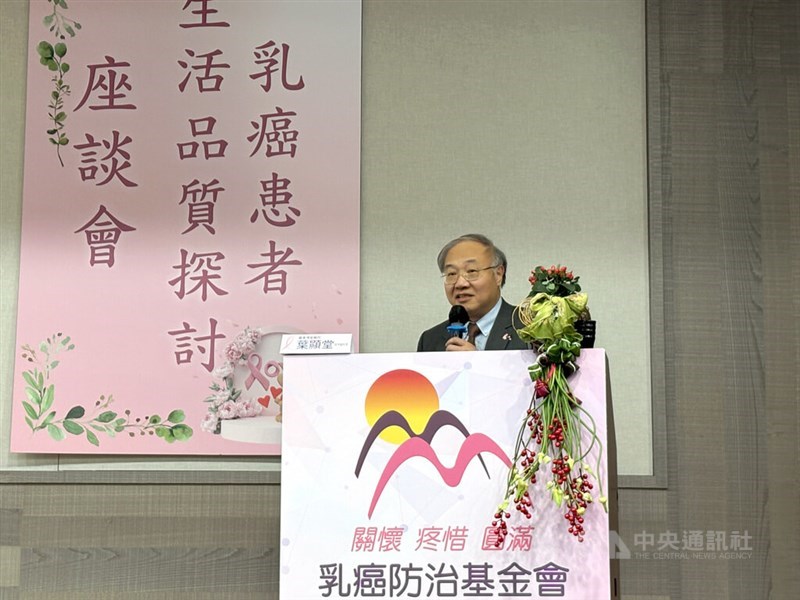
Taipei, May 25 (CNA) More than 60 percent of breast cancer patients experienced long-term emotional distress or stress-related issues prior to their diagnosis, according to a new survey released by the Taiwan Breast Cancer Foundation (TBCF) Sunday.
TBCF Chairman Chang Chin-chien (張金堅) said that growing research suggests a link between chronic stress and the development, progression and metastasis of cancer. He explained that stress can weaken the immune system and trigger inflammation, both of which contribute to tumor growth.
Speaking at a TBCF forum on patient quality of life, Chang said while short-term stress can be managed, chronic stress leads to excessive secretion of hormones like cortisol and adrenaline, which negatively affect overall health.
These stress hormones, he noted, can alter the tumor microenvironment by increasing harmful inflammatory factors and encouraging new blood vessel and nerve formation, which may fuel tumor growth and spread.
The survey, conducted from late February to March 31 with 2,450 valid responses, also found that fear of cancer recurrence is the most common psychological burden during treatment and recovery, affecting 60 percent of patients.
Treatment-related discomfort, including nausea, fatigue and pain, was another significant source of emotional stress. About 44 percent of respondents said these symptoms often caused anxiety or low mood.
Chang also pointed out that chronic stress suppresses immune defenses by reducing the number of cytotoxic T cells and natural killer cells that attack cancer, while increasing immune-suppressing cells that protect tumors.
To counter these effects, he recommended that patients adopt a Mediterranean-style diet and maintain regular physical activity to reduce stress and enhance immune function.
- Society
Heavy rain forces closure of schools, offices in parts of southern Taiwan
08/02/2025 10:49 PM - Culture
Mascot of Taiwan program in Osaka proves popular with high merch demand
08/02/2025 10:44 PM - Cross-Strait
Veteran Hong Kong journalists to launch new media outlet with Taiwan branch
08/02/2025 09:33 PM - Society
Crew aboard Ever Lunar safe after containers fall overboard: Evergreen
08/02/2025 05:17 PM - Business
Tariffs set to hit local old economy industries hardest: Scholars
08/02/2025 05:11 PM